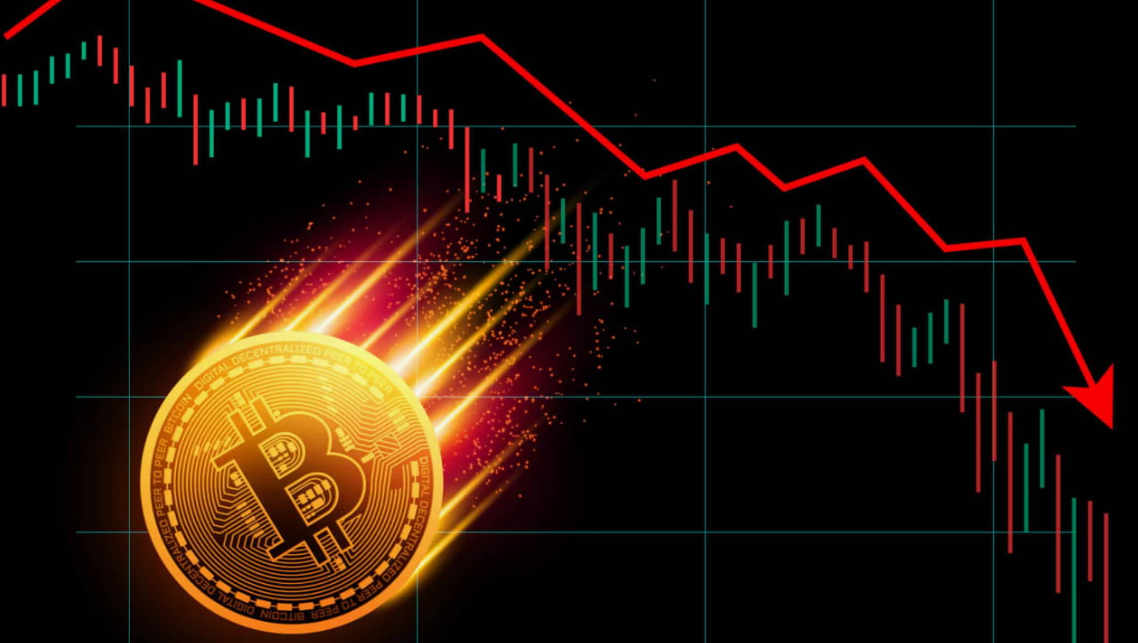When big things change in the financial markets, everybody feels it—whether it’s gold, oil, forex, or crypto. These changes impact investment strategies for everyone, from major brokers to individual traders, even to financial analysts keeping an eye on trends. Right now, we’re seeing market movements that could make or break many investment strategies. Here, we’ll dive into how major shifts are shaping how we invest today and how to adapt with them.
Understanding Market Shifts and Their Impact on Investments
Let’s start with a basic idea: markets are never static. They change constantly due to things like economic policies, geopolitical tensions, or even natural disasters. And every shift affects assets like gold, oil, forex, and crypto in different ways. If you’re following market news, you’ve probably noticed how even small changes can make a big difference. Here’s a look at some major shifts going on right now.
The Role of Geopolitical Tensions
Global events have a huge impact on markets. For instance, political tensions between countries can lead to sanctions, affecting oil and commodities. These tensions can cause traders to shift their investments from riskier assets (like certain stocks) to safer options (like gold or U.S. dollar). And that’s where FXpricing’s live data comes in handy—it helps you react instantly to these changes.
When countries face political tensions or unexpected events, forex and commodities feel the heat. For example, oil prices spike when there’s instability in oil-producing countries, and forex traders might quickly shift their strategies. Having reliable data from FXpricing can make a big difference for traders who want to stay one step ahead.
Inflation Pressures and Interest Rates
Interest rates are rising to counter inflation, which has been high in many parts of the world. When central banks increase interest rates, it impacts borrowing costs. This also affects forex markets because currencies are directly influenced by interest rates. High inflation can lead investors to look for stable, inflation-resistant assets, such as gold, to preserve their wealth. FXpricing provides insights into these markets, allowing traders and investors to adjust their strategies quickly.
How Traders Are Adapting Their Strategies
When you’re dealing with unpredictable shifts in markets, flexibility is key. Today’s successful traders need to be nimble and keep an eye on real-time data to make timely decisions. Let’s break down how different traders are adjusting their strategies in response to recent market shifts.
1. Hedging with Gold and Oil
Gold is a traditional safe-haven asset. When things get shaky, investors flock to gold to hedge against risks. Right now, gold remains popular as a hedge against inflation. Oil, too, plays a role, especially for traders focusing on commodities. FXpricing’s tools make it easier to monitor these prices in real time and decide when to invest or hold back.
2. Taking Advantage of Forex Volatility
In times of high inflation or economic uncertainty, currency values can be all over the place. Forex traders use FXpricing’s real-time currency data to make quick calls on trades, taking advantage of these fluctuations. For instance, they may trade pairs that are influenced by interest rate hikes or global events.
3. Investing in Cryptocurrencies as an Alternative
Crypto markets are always evolving, and while they’re volatile, they offer unique opportunities, especially for younger traders or those with a higher risk tolerance. Bitcoin, Ethereum, and newer altcoins often react differently to traditional market events, sometimes acting as a hedge and sometimes mirroring traditional assets. FXpricing offers live data for cryptocurrencies, giving traders a head start on making strategic decisions.
The Importance of Real-Time Data in Investment Strategy
For a trader, having real-time data is like having a sixth sense. When big changes happen, those with the quickest access to data often gain the advantage. FXpricing’s tools provide live rates and instant updates across multiple asset types, from forex to commodities to cryptocurrencies. Imagine being able to see an oil price spike as soon as news of an unexpected supply disruption hits—that’s where FXpricing’s value shines.
Staying Updated with FXpricing’s Features
With FXpricing, traders don’t just get numbers; they get context. Their platform provides historical and real-time data, API integrations, customizable dashboards, and even a financial calendar to track important events. Knowing what’s happening and why gives traders an edge in reacting quickly to market changes.
Practical Tips for Traders During Major Market Shifts
If you’re looking to stay ahead of the curve, here are some practical tips to help navigate major market shifts with confidence:
- Diversify Your Portfolio: Don’t put all your eggs in one basket. Spread your investments across forex, commodities like gold and oil, and perhaps even cryptocurrencies if you’re comfortable with the volatility.
- Use FXpricing’s Customizable Dashboards: With so much data available, it can be overwhelming. Customizable dashboards let you see what’s most relevant to you, making it easier to track assets you care about.
- Stay Updated on Economic Calendars: Knowing when key economic announcements are coming up (like interest rate changes) can help you prepare. FXpricing’s economic calendar is perfect for staying informed on important events.
- Set Clear Stop-Loss Limits: Don’t let emotions drive your decisions. Setting stop-loss limits can protect you from major losses during sudden market downturns.
Personal Insights: Lessons Learned from Past Market Shifts
Market shifts teach us something every time. Personally, one of the biggest lessons I’ve learned is to stay flexible. During the COVID-19 pandemic, we saw market changes that nobody could have predicted. Many traders who were quick to adapt found opportunities where others didn’t. Having tools like those provided by FXpricing can make a huge difference because, in volatile times, knowledge truly is power.
Another lesson? Timing. In fast-moving markets, it’s not just about what you buy but when you buy. With FXpricing’s up-to-the-minute data, you’re better positioned to make the right moves at the right time.
Conclusion: Market Shifts Demand Flexible Strategies
Right now, we’re seeing major changes in financial markets. From inflation and interest rates to geopolitical tensions and emerging cryptocurrency trends, there are new challenges and opportunities daily. With tools like those offered by FXpricing, traders can navigate these uncertain waters with confidence. In the end, staying informed and flexible is what separates successful traders from the rest.
FXpricing gives traders and investors everything they need to make informed decisions in real-time, helping them stay agile no matter what the markets throw at them. As we continue to see market shifts, FXpricing’s tools and resources will remain essential for staying ahead.
FAQs
1. Why is real-time data so important for trading?
Real-time data allows traders to react instantly to market changes, giving them a crucial edge. Delayed information could mean missed opportunities or bigger losses.
2. How does inflation affect gold and oil prices?
Higher inflation often drives investors toward gold as a hedge, increasing demand and price. For oil, inflation can affect production and transportation costs, impacting supply and demand.
3. Can forex and cryptocurrency markets react differently to the same event?
Yes, forex and crypto markets can respond differently based on the nature of the event. For example, a central bank interest rate hike might strengthen certain currencies but lead to volatility in cryptocurrencies.
4. What tools does FXpricing offer to help with market analysis?
FXpricing offers a wide range of tools, including live forex rates, historical data, customizable dashboards, economic calendars, and integration-ready APIs to help traders make informed decisions.5. Is crypto a good alternative investment during market volatility?
Crypto can offer potential gains, but it’s also highly volatile. It can be a good alternative for traders with a higher risk tolerance, but it’s essential to have reliable data and stay updated on market trends.





